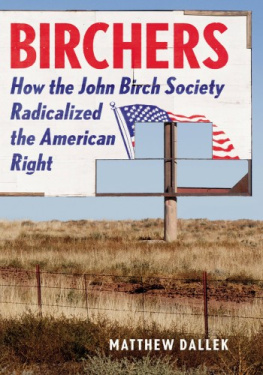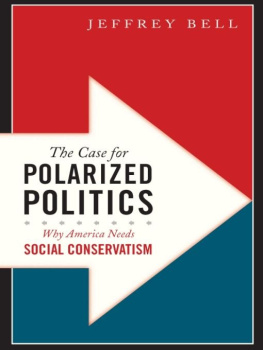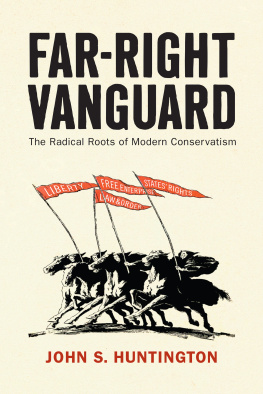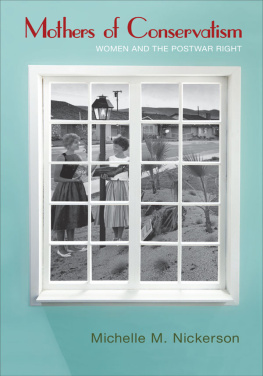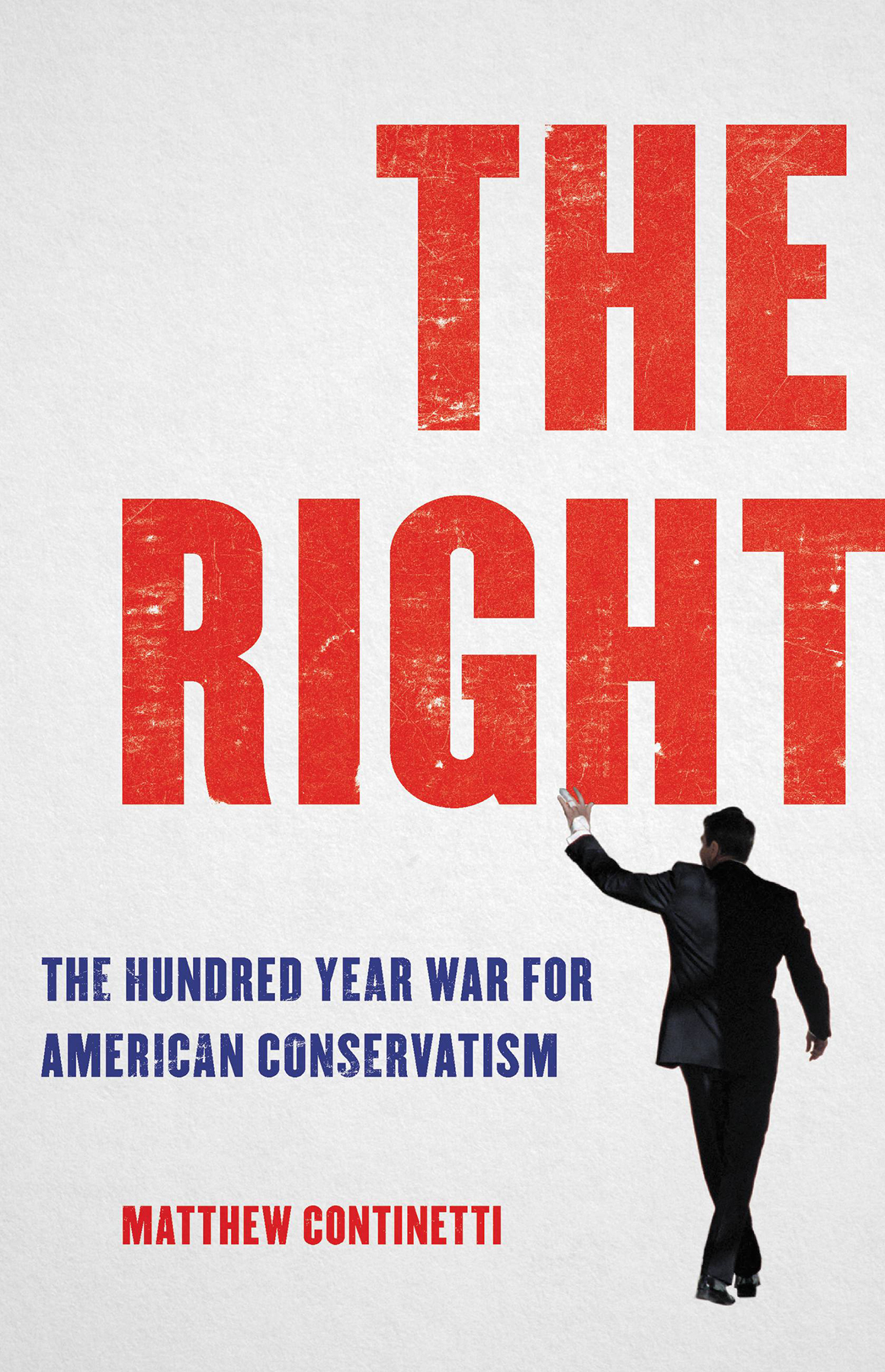
Aaron Clamage Photography, American Enterprise Institute
Matthew Continetti is a senior fellow at the American Enterprise Institute. In 2012 he cofounded the Washington Free Beacon , where he served as editor in chief until 2019. A contributing editor at National Review and a columnist for Commentary , he has published articles and reviews in the New York Times , Atlantic , Washington Post , and Wall Street Journal . He is also author of The K Street Gang (2006) and The Persecution of Sarah Palin (2009). He and his family live in Virginia.
Copyright 2022 by Matthew Continetti
Cover images Wonderstock / Alamy Stock Photo; NataLT / Shutterstock.com; h.yegho / Shutterstock.com
Cover copyright 2022 by Hachette Book Group, Inc.
Portions of this work have been adapted from the authors articles in the following publications:
Chapter 8: National Review , The Conservative Sensibility Is George Wills Definitive Declaration, July 8, 2019.
Chapter 9: Washington Free Beacon , Crisis of the Conservative Intellectual, October 21, 2016; Commentary , Learning from Commentary, November 2020.
Chapter 11: Washington Free Beacon , The Era of Limbaugh, February 7, 2020.
Chapter 13: Washington Free Beacon , Revenge of the Radical Middle, July 24, 2015; The Party Divides, December 11, 2015; 2016: The Trump Election, December 15, 2015; Donald Trump and Conservative Dogma, September 13, 2016; The Politics of Dissociation, September 30, 2016.
Chapter 14: Washington Free Beacon , Making Sense of the New American Right, May 31, 2019; New York Times , Is Trump Really All That Holds the GOP Together? December 22, 2020; National Review Online , Trump Must Pay, January 6, 2021.
Conclusion: Washington Free Beacon , What Do Republican Voters Want? November 15, 2019.
Hachette Book Group supports the right to free expression and the value of copyright. The purpose of copyright is to encourage writers and artists to produce the creative works that enrich our culture.
The scanning, uploading, and distribution of this book without permission is a theft of the authors intellectual property. If you would like permission to use material from the book (other than for review purposes), please contact permissions@hbgusa.com. Thank you for your support of the authors rights.
Basic Books
Hachette Book Group
1290 Avenue of the Americas, New York, NY 10104
www.basicbooks.com
First Edition: April 2022
Published by Basic Books, an imprint of Perseus Books, LLC, a subsidiary of Hachette Book Group, Inc. The Basic Books name and logo is a trademark of the Hachette Book Group.
The Hachette Speakers Bureau provides a wide range of authors for speaking events. To find out more, go to www.hachettespeakersbureau.com or call (866) 376-6591.
The publisher is not responsible for websites (or their content) that are not owned by the publisher.
Library of Congress Cataloging-in-Publication Data
Names: Continetti, Matthew, author.
Title: The right : the hundred year war for American conservatism / Matthew Continetti.
Description: First edition. | New York : Basic Books, 2022. | Includes bibliographical references and index.
Identifiers: LCCN 2021043103 | ISBN 9781541600508 (hardcover) | ISBN 9781541600522 (ebook)
Subjects: LCSH: Republican Party (U.S. : 1854 )History. | ConservatismUnited StatesHistory20th century. | ConservatismUnited StatesHistory21st century. | United StatesPolitics and government.
Classification: LCC JC573.2.U6 C6537 2022 | DDC 324.2734dc23/eng/20211203
LC record available at https://lccn.loc.gov/2021043103
ISBNs: 9781541600508 (hardcover), 9781541600522 (ebook)
E3-20220301-JV-NF-ORI
To Anne
What is conservatism? Is it not adherence to the old and tried, against the new and untried? We stick to, contend for, the identical old policy on the point in controversy which was adopted by our fathers who framed the Government under which we live; while you with one accord reject, and scout, and spit upon that old policy, and insist upon substituting something new. True, you disagree among yourselves as to what the substitute shall be. You are divided on new propositions and plans, but you are unanimous in rejecting and denouncing the old policy of the fathers.
ABRAHAM LINCOLN, FEBRUARY 27, 1860
O N JULY 6, 2003, THREE MONTHS INTO THE SECOND IRAQ War, I showed up at 1150 Seventeenth Street NW in Washington, DC. I had just turned twenty-two. It was my first day as an editorial assistant at the Weekly Standard .
At the time, 1150 Seventeenth Street was more than an office building. It was an intellectual hubthe frontal cortex of the American Right. The magazine where I was about to begin work was the most influential in the city. Copies of the Standard arrived at the White House each week. A photograph hanging from a wall in the magazines office showed President George W. Bush reading an issue. The Standard s editors appeared regularly on the most important source of information for Republicans and conservatives: the Fox News Channel. But the Standard also had mainstream credibility. One of its senior editors, David Brooks, was a fixture on PBS and NPR. He was about to join the New York Times .
From 1150 Seventeenth Street emanated the ideas that shaped the Republican White House and Congress and then the world. On the same floor as the Standard was the Project for a New American Century (PNAC). It was a small think tank cofounded by the magazines editor that since its inception in 1997 had advocated for a defense buildup, containment of China, and regime change in Iraq. The top floors of the building housed the Rights premier think tank: the American Enterprise Institute (AEI). Taxes had been cut, welfare reformed, social programs redesigned, and governments toppled because of the intellection that took place within the walls of 1150 Seventeenth Street.
That morning I was walking into not just a building but an intellectual and political movement. A few years earlier, as an undergraduate at Columbia University, I had stumbled upon American conservatism and the theoretical works that undergird its thought. In the months before and after the terrorist attacks of September 11, 2001, I had read (and only somewhat understood) Russell Kirks The Conservative Mind , Leo Strausss Natural Right and History , Richard Weavers Ideas Have Consequences , and Milton Friedmans Capitalism and Freedom . I picked up copies of William F. Buckley Jr.s National Review , Seth Lipskys New York Sun , Norman Podhoretzs Commentary , and the Weekly Standard . In 2004, when John Micklethwait and Adrian Wooldridge wrote The Right Nation: Conservative Power in America , I felt a thrill of recognition when these two British editors of the Economist identified 1150 Seventeenth Street as the center of a rive droit , a right bank, a hub of conservative activity that included the Ethics and Public Policy Center, a small think tank next door; the offices of the Public Interest one block away; and the DC branch of the Hoover Institution and its publication, Policy Review , up Connecticut Avenue.
The rive droit is gone now. The building at 1150 Seventeenth Street was demolished in 2016. AEI moved to a renovated mansion near Dupont Circle. Neither PNAC nor the Standard exists any longer. The George W. Bush administration is a distant memory. The twin projects of 1150 Seventeenth Streetthe expansion of democracy abroad and a recommitment to traditional moral values at homeran aground.


